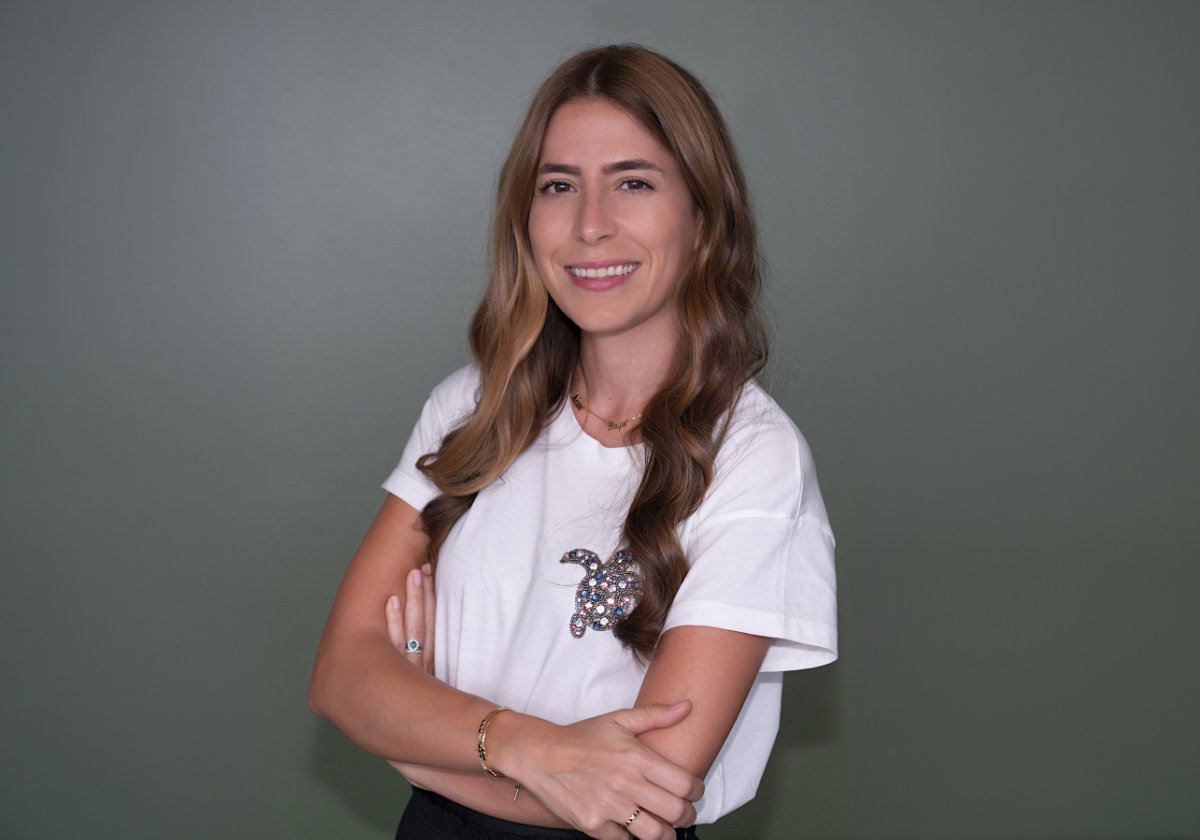Can you tell us about the latest content trends on Instagram in the Middle East, particularly in Saudi Arabia?
The Middle East region has one of the highest social media usage rates in the world. People in the region have turned to Instagram to stand behind causes they care about and have successfully ignited waves of digital activism, which gave rise to content that focuses on sharing information and educating communities. It also allowed others to find their own voices in these movements.
We have also seen an increasing interest in virtual reality (VR) and augmented reality (AR) among our communities as the buzz around concepts like the metaverse and Web3 continues.
Content creators in the region creatively used our Spark AR features to bring forth the spirit of Ramadan and augment the holy month celebrations with filters by @Bdanabol and @aymen_ghnia topping the list.
Reels content has also been on the rise with content spanning everything from celebrating Saudi coffee on the back of declaring the year 2022 as the Year of Saudi Coffee, to anime and K-pop content, and the latest hits on Netflix.

Moon Baz, head of Entertainment Partnerships for MENA and Turkey at Meta. (Supplied)
Can you elaborate on the popularity of anime content on the platform?
The Middle East has had a soft spot for anime since the Eighties. The Japanese art has inspired Arab creators to use anime for self-expression, incorporating Arab culture and sensibilities within its parameters of character and world-building.
With the boom in local anime creation, lovers of the medium are increasingly turning to Instagram as the platform to showcase their talents. To date, the hashtag #anime has garnered almost a million followers across KSA, UAE, Egypt and Kuwait on Instagram.
Regional creators are exploring the full range of the anime universe with manga, cosplay, origami and folktale anime productions coming together on the platform and redefining the boundaries of the medium through its originality.
Talents like Jassim Al Mohannadi use Instagram to publish original anime productions spiced with Middle Eastern flavors. Jasim has published 21 chapters of his own Arabic manga creations on WEBTOON under the title “Justice in the Wasteland” and penned the Middle Eastern manga “Primeval.” Others like Reem (@renberryart) were able to turn their impressive talents in anime illustration into a source of income on Instagram. Everything from anime movie characters to fusions of Mirko and Tengen can be found on Reem’s emerging storefront.
We are delighted to witness the incredible Japanese art shaping Middle Eastern creator communities and further making Instagram home to self-expression.
How has fashion and travel content grown on the platform?
Instagram is a place to explore, share and push culture forward. We see our community heading to places like Explore, Reels, and Stories for inspiration, self-expression and discovery of all types of content. Yet, there is no doubt that the fashion and travel categories have always been, and continue to be, a cornerstone of the Instagram experience.
There is always a new fashion trend to jump on in terms of what to wear and where to shop. Our 2022 Instagram Trends Report has shown that Gen Z is now making bold moves with its style choices, using fashion as a vehicle for joy, optimism and self-expression.
They are also moving away from big-box online retailer websites as more than half of young people are interested in new shopping experiences, opening new avenues for small-to-medium businesses and thrift shops.
In the region, we saw a recent interest in modest fashion where the hashtag #modestfashion grew 45 percent in the UAE, as creators were experimenting in the lead-up to Ramadan.
Travel content has also been on the rise, especially with the boom of Reels. We have seen creative content from a plethora of creators in the region such as Murad and Nataly Osmann and Kasem Hato, who continuously share everything from vacation hotspots for the summer to hidden gems around the world through content that sparks a sense of adventure.
What do brands need to know about current content trends both in terms of creating their own content as well as in terms of collaborating with creators?
90 percent of people on Instagram follow a business globally, making it easier for brands to transform content into commerce by building trust with customers through their owned channels as well as collaborating with key opinion leaders and creators.
We introduced an array of tools that help brands seamlessly connect and collaborate with creators on Instagram including Branded Content Ads, Shopping from Creators, and Branded Content Tags, to name a few.
Last year, we added a new hub to the Professional Dashboard where businesses can find inspiration to spark more content ideas for those unsure where to start. Instagram users with business accounts can browse a collection of quality organic and promoted posts from other businesses in the hope it will inspire them to post their brand-specific content.
There is so much room for exploring and expanding brands’ presence online and to make that search easier, we curated guidelines and tips to help businesses amplify their growth based on their goals.
How is Instagram investing in content creators?
Creators are the heart of culture on Instagram. We’re committed to building a suite of tools to support creators’ various needs and ambitions, regardless of if they’re aspiring, emerging or established creators.
If you have an idea that you want to share with the world, you should be able to create it and get it out there easily and simply — across Facebook and Instagram — and earn money for your work. That is why we are focused on developing a range of creative and monetization tools across our platforms to support creators’ various needs and ambitions, whether they are just getting started or already have an established brand.
In 2021, we expanded the support to fund content for even more creators to produce fun and engaging content that will help them grow their personal brands and make a living. We also launched @creators as a way to reach even more aspiring creators around the world with best practices, product news, and tips & trips.
We have a dedicated creators’ page, which includes everything a creator needs to know on Instagram — ranging from trends, content tips, success stories, staying safe and earning money, to guidelines on using the most recent tools and features.
By the end of 2022, we plan to invest over $1 billion in programs that give creators new ways to earn money for the content they create on Facebook and Instagram. This investment will include new bonus programs that pay eligible creators for hitting certain milestones when they use our creative and monetization tools.
We will also provide seed funding for creators to produce their content. Our goal is to help as many creators as possible find sustainable, long-term success on our apps.
Lastly, how does Instagram moderate and monitor content?
When we find content such as a post, comment or story that goes against our Community Guidelines, we remove it from Instagram. If the content does not go against our Community Guidelines but may be inappropriate, disrespectful or offensive, we may limit it from Explore, rather than removing it from Instagram.
Our Community Guidelines define what is and is not allowed on Instagram, and they apply all over the world. They are designed to encourage expression and create a safe environment on Instagram.
To find, review and take action on content that may go against Community Guidelines, we use technology and human reviewers. Artificial intelligence technology is central to our content review process. AI can detect and remove content that goes against our Community Guidelines before anyone reports it.
Other times, our technology sends content to human review teams to take a closer look and make a decision on it. These thousands of reviewers around the world focus on content that is most harmful to Instagram users.
Anime content creators in the Middle East
User: @artistsoosa https://www.instagram.com/artistsoosa/
About: Jeddah-born Samah Kamil was the first Arab artist to receive a master’s degree in the art of manga from the Arts & Designs faculty at King Abdulaziz University in Saudi Arabia. As well as being an artist, she’s also the editor of Manga Arabia, and leads and facilitates workshops covering a variety of manga-related topics.
Her work, which she posts on Instagram, illustrates Saudi culture through contemporary anime drawings, reflecting meaningful plots with relatable characters and social messages.
User: 6th__kage https://www.instagram.com/6th__kage/
About: The Saudi-based content creator is an avid gamer who merges the worlds of gaming and anime. He often cosplays his favorite character Kakashi Hatake from the manga series Naruto.
User: @Paris.ae https://www.instagram.com/paris.ae/
About: Taking cosplaying to the next level, @Paris.ae presents herself as an Emirati Kawaii doll bringing anime characters to life.
User: @Renberryart https://www.instagram.com/renberryart/
About: 21-year-old Reem has combined her passion for all things anime and her artistic skills to create digital art that she posts and sells through her Instagram page.


























